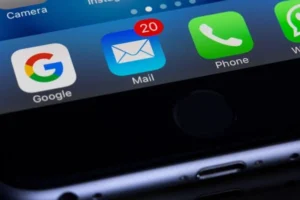
Medical professionals often perceive successful treatment as the only key to patients’ satisfaction. But that is not true. Patients these days also seek flawless management in hospitals and clinics they are consulting with or taking treatment from. What if a blood test report gets exchanged between two patients in a hospital? In that case, those patients might get the wrong medicines prescribed, which can be dangerous to their lives. What if the patient’s personal information gets leaked? An API overview of hospital management systems can highlight how such issues are addressed. That would harm the hospital’s reputation and thus adversely impact the revenue generation of the entire organization’s healthcare CRM software.
Healthcare organizations cannot, in any situation, afford to be negligent when it comes to delivering services to their patients and maintaining their records. For that reason, investing in the best healthcare CRM solution becomes vital to maintaining accuracy and flawlessness in the administrative operations within the healthcare organization.
As per a recent research report, the healthcare CRM market is expected to reach a market size of USD 26.35 billion by 2027 from USD 9.90 billion in 2019 at a CAGR rate of 13.8%. The increased requirement for enhanced patient experience is driving this growth in the healthcare CRM market. Also, the demand for marketing in the healthcare industry is constantly accelerating, which has augmented the usage of healthcare CRM within hospitals and clinics.
Here, we will look into the information about why investing in healthcare CRM software is highly significant. But before that, let’s have a basic understanding of what healthcare CRM is and how it works.
What is healthcare CRM?
A customer relationship management software exclusively designed for companies and organizations providing healthcare services is known as healthcare CRM. The main goal of a healthcare CRM is to maintain relationships with existing patients and engage new ones.
It helps create a comprehensive profile of the patients that includes their demographics, which helps the administrative and operational staff members manage the entire workflow of the healthcare organization flawlessly.
Also, it becomes easy for the patients to interact with the clinical staff members to acquire financial and other information relevant to their treatment.
The reporting features of the healthcare organization help the administrative staff identify patients having appointments or due follow-ups and tests. Overall, it helps improve the entire internal workflow of the healthcare organization and deliver the best patient experiences.
How does a healthcare CRM work?
Healthcare customer relationship management is all about the use of technology to improve maternal health, patient care, and experiences. It helps in providing value-added services to the patients and delighting them to gain their loyalty.
With the increasing competition among hospitals and clinics, patients have various choices when it comes to caring for their health and availing of treatments. So, healthcare organizations need to ensure that they deliver flawless services and the best treatment to their patients. Like CRM for other businesses, healthcare CRM also includes different modules that streamline all the processes and quicken the workflow within the entire healthcare organization.
Patient Database Management: This module helps healthcare organizations record and maintain each patient’s details and segregate them into groups based on their demographics, disease, treatment, medications, etc. It also enables the fetching of this information quickly when required and the efficient conduct of interactions.
Communication: Communicating promptly is highly important when it comes to healthcare and medical treatments. The healthcare CRM software includes a module that helps healthcare management staff initiate, schedule, monitor, and record communication with patients and set up appointments.
Marketing: Modern healthcare CRM tools enable planning and executing marketing campaigns through different channels like social media, email, etc. Online promotion is a necessity for businesses and has become a significant aspect that can help a healthcare organization gain a reputation and prosper financially.
Operations: This module of healthcare CRM software enables you to assign, update, track, and monitor tasks. It becomes easy for you to control operational costs and ensure that all tasks are completed within a stipulated time frame.
“Dissatisfied customers communicate with 7–10 people, while a satisfied customer will recommend a company to 3–4 of their friends.”
For healthcare organizations, patients are their customers, and they cannot afford to lose them to sustain and grow consistently. Healthcare CRM can contribute to a great extent when it comes to patient experiences.
To elaborate further, let’s look at five ways healthcare CRM can help a healthcare organization enhance its workflow and deliver better patient experiences.
1. Improved communication
Healthcare CRM allows clinical staff to send personalized messages to patients relating to medication intakes, health tips, and even birthday wishes based on their information pertaining to diseases, age, gender, birth date, profession, etc.
The AI-based healthcare CRMs are even equipped with chatbots that can provide 24/7 assistance to patients. Moreover, sending reminders relating to their medical tests and follow-ups makes it easy for the patients to receive the proper treatment at the right time. All these aspects add to the patient experience and encourage them to recommend your healthcare organization to other people, resulting in enhanced reputation and financial growth.
2. Ensured compliance and security
The use of healthcare CRM means the patients’ information is stored securely, and thus the chances of getting that information leaked decrease. The healthcare CRM incorporates several security mechanisms that help protect patients’ information.
A well-designed healthcare customer relationship management system includes high-end security features like HIPAA-compliant data storage, data encryption, user authentication, digital signatures, and many more. It is very important to improve digital health in 2021.
3. Improved billing workflows
A healthcare CRM allows the automation of bill generation and emailing to patients. Further, it also includes analytical tools that provide real-time information about the payments collected and pending. It allows scheduling reminders that are sent automatically to the patients if their payment has not been received.
4. Streamlined Operations
A healthcare CRM includes a centralized database that stores information about every patient and the interactions between the clinical staff and the patients on a real-time basis. It helps you access the required information quickly at your fingertips. This helps improve the overall performance and productivity of the healthcare organization staff, who are thus available to help the patients flawlessly. It also helps with task management and internal staff communication, keeping the operations streamlined and enabling the staff to provide excellent patient experiences.
5. Automated Resource Management
A healthcare CRM can help manage the schedule of doctors, surgeons, and physicians. This helps patients manage resources on a priority basis. For example, suppose there is an emergency and the patient requires a doctor to attend to them. In that case, healthcare CRM can provide information about the availability of doctors within the premises and immediately start the treatment. It also intimates the availability of operation theaters and other healthcare equipment. This helps large healthcare organizations manage their resources efficiently and deliver the proper treatment to patients on time.
Is it worth investing in a healthcare CRM system?
A healthcare CRM system can help your healthcare organization follow the right approach to serving and treating patients and effectively communicating with existing and new patients. Moreover, it can automate all your internal processes, maintain data security, and provide a healthy work environment for all your staff members.
You can check out some of the top healthcare CRM software if you are looking forward to investing in the best one in terms of functionality and emerging technologies. Before selecting one, keep your healthcare organization’s requirements in mind and set the goals you need to achieve using your CRM tool.
Otherwise, you are likely to invest in the wrong CRM solution with unnecessary features that are of no use to you and may prove a liability to your healthcare organization. Moreover, you also need to ensure that your staff is trained to use the healthcare CRM software you are investing in to prevent loss of productivity and confusion within the organization.
However, considering the benefits of using the healthcare CRM software mentioned in this article, it is worth the investment. Just make sure that you invest in the best healthcare CRM software, keeping the requirements and goals of your organization in mind.
Also read: Salesforce CRM for Several Industries






